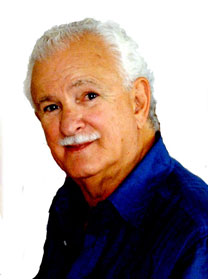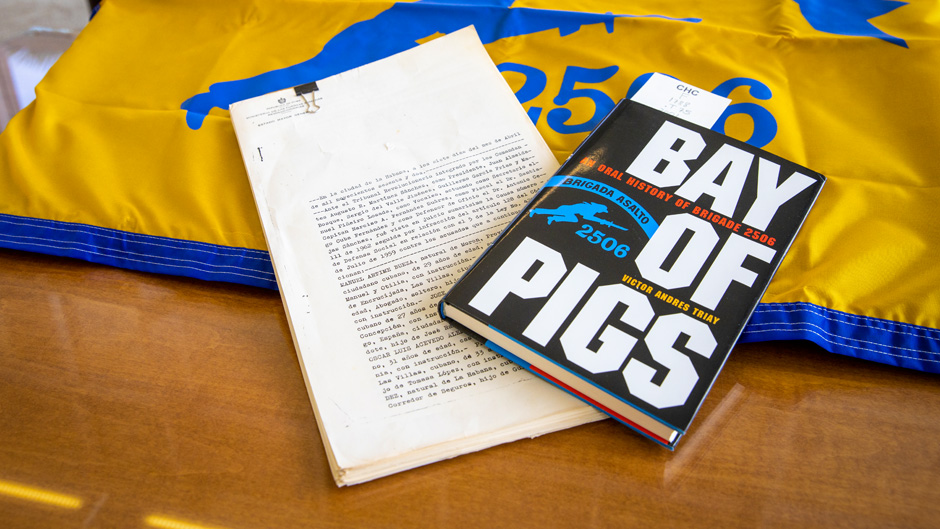When he was 25 years old, Cuban exile Eduardo Zayas Bazán, fearful that his homeland would forever remain under communist rule, made a fateful decision.
Leaving behind his young wife and 2-month-old son, he enlisted in a CIA-led mission to secretly invade Cuba and defeat the Castro regime.
Zayas Bazán was one of 1,400 American-trained Cubans who took part in the Bay of Pigs invasion of the island on April 17, 1961. It was in the middle of the Cold War and the United States government wanted to topple the Castro regime, a communist government supported by the Soviet Union.
President John F. Kennedy followed through with the invasion plans. Ultimately, the invasion failed because the U.S. did not include air support, according to Zayas Bazán.

On the upcoming 60th anniversary of the invasion, Zayas Bazán, professor emeritus of foreign languages at East Tennessee State University, who sits on the board of the Amigos of the University of Miami Cuban Heritage Collection, firmly believes that if the U.S. had followed through with its promise, Cuba would be free, prosperous, and a tourist paradise.
“We had no doubt whatsoever that the invasion would succeed. The Americans were financing us in all kinds of ways and the CIA was training us. We were convinced that even though some of us may die, the invasion would still succeed,” he said. “It never crossed my mind that the invasion would fail.”
Because of his background as a swimming instructor in Cuba, Zayas Bazán had volunteered as a frogman, or underwater demolition diver for the incursion. He and four other frogmen landed on Girón Beach along the east bank of the Bay of Pigs, and the rest of the troops followed. During the three-day battle that ensued, he was wounded in his right knee and captured, along with the rest of his colleagues. About 114 Cuban exiles were killed during the attempted invasion.
The rest of the men were imprisoned, brought to trial, and given long sentences. Eventually, they were released to the U.S., traded for food and medicine.
Zayas Bazán was jailed for almost a year. On his return to Miami, he and his colleagues of the Brigade 2506 were honored during a packed ceremony at the Orange Bowl stadium, where Kennedy spoke. “We were received like heroes,” remembered Zayas Bazán.
Anything that has to do with Cuba is sacred for Zayas Bazán. That is why he donated the original document listing the sentences of all his colleagues and himself to the Cuban Heritage Collection. The instrument, which was given to the men by the Cuban government, is one of the dozens of manuscripts, objects, and books on the Bay of Pigs held by the collection.
Elizabeth Cerejido, director of the Cuban Heritage Collection, said that “the Cuban Heritage Collection's fundamental mission is to collect, preserve, and provide access to a vast repository of materials related to Cuba, the Cuban exile experience, and Cuba's global diaspora.”
According to Cerejido, “this vast repository of resources, which we safeguard in perpetuity, not only support research and the production of innovative scholarship, but they serve the important function of educating present and future scholars about all aspects of Cuban history,” she noted. “Just as important, these are testaments that help connect material culture to lived experiences.” Among the objects in the collection are graphic photos depicting the battle on Girón Beach and its aftermath, a flag with the 2506 logo, and books and papers on the invasion, including some from Cuba.
“The Flying Fish,” a novel that Zayas Bazán co-wrote with Robert Higgs, a fellow academic, is part of the collection. It chronicles the Bay of Pigs event. Zayas Bazán also plans to donate his recently published autobiography, "My Life."
Zayas Bazán stated that as he recalls the invasion as its anniversary approaches, he does so with the conviction that if the invaders had been successful, “the world would be different because there would not be a communist government in Cuba causing problems.”

